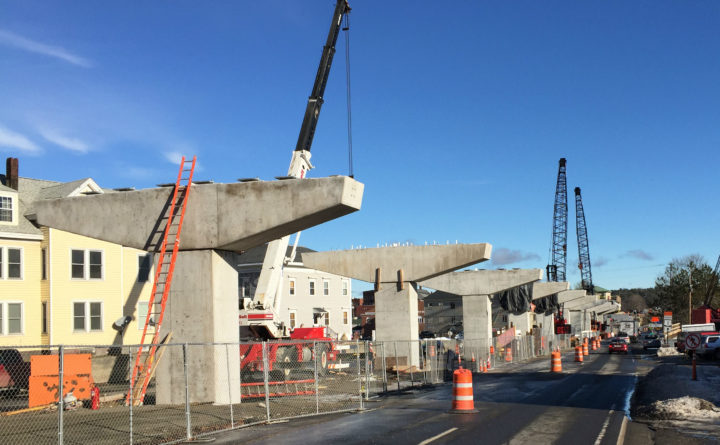
AUGUSTA, Maine — There is probably nothing more unifying in Maine’s contentious politics than borrowing lots of money to improve the state’s transportation system, but recent events at the State House have also showed why it may be a poor policy.
Maine has issued bonds since the 1950s to construct and improve highways, roads and bridges, but these kinds of general transportation bonds didn’t become regular until the 1990s. That said, borrowing for transportation maintenance has intensified during the past eight years amid problems with state and federal highway funding.
Since 2001, voters have agreed to borrow nearly $832 million for transportation, with more than half of that resulting from five bonds authorized by voters since 2012. The lowest share of voter approval for any of those bonds was 61 percent in 2016.
They typically sail through the Legislature and are applauded by all sides — until now. Gov. Paul LePage, who has always backed transportation bond questions, recently shocked transportation interests by refusing to authorize the sale of $117 million in voter-approved bonds.
To read the rest of “Why borrowing to fix roads and bridges puts Mainers at risk,” an article by contributing Bangor Daily News staff writer Michael Shepherd, please follow this link to the BDN online.







